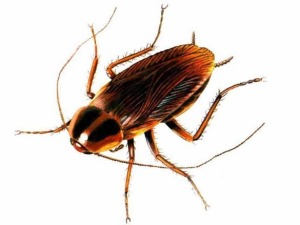by
Brendon Nafziger, DOTmed News Associate Editor | September 07, 2010

Fighting drug-resistant germs.
No one would want to see a cockroach scamper around a hospital floor, but researchers think chemicals in their brains could help fight drug-resistant bloodstream infections.
Scientists at the Society for General Microbiology's fall meeting at the University of Nottingham in the UK said they have found nine molecules in the brains of cockroaches and locusts that are lethal to 90 percent of methicillin-resistant Staphylococcus aureus infections and E. coli.
"We hope that these molecules could eventually be developed into treatments for E. coli and MRSA infections that are increasingly resistant to current drugs," Simon Lee, a Nottingham researcher who presented the findings Monday, said in a statement. "These new antibiotics could potentially provide alternatives to currently available drugs that may be effective but have serious and unwanted side effects."
One reason the insects' nervous system might hold antimicrobial properties is the filthiness of their environment, Lee said.
"Insects often live in unsanitary and unhygienic environments where they encounter many different types of bacteria," he said. "It is therefore logical that they have developed ways of protecting themselves against micro-organisms."
According to the Centers for Disease Control and Prevention, almost 19,000 Americans die every year during hospital stays related to severe MRSA infections.
